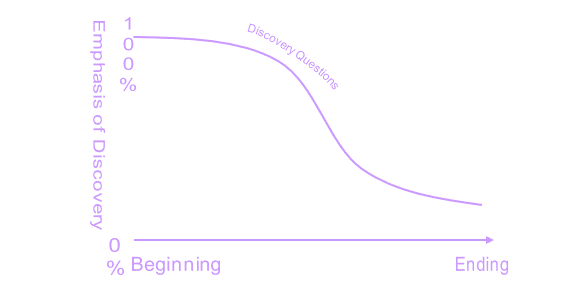Sales Skills Needed To Be A Successful Salesperson
With the advent of the mobile phone, it was predicted that with easy access to the internet that human interactions via the phone would eventually disappear. Even though the mobile phone gave you anywhere instant access to the internet, the predictions neglected one important item. The mobile phone was first and foremost a phone.
Since this prediction, studies have shown that, in 2022, 68% of consumers prefer to communicate with a business via a phone call. This is not through and IVR, chatbot, or chat. That is a one-to-one human interaction. Regardless the type of sale, a lot of the interactions are done over phone or video conference. Regardless the communication channel, there are certain sales skills that every salesperson should master. Below are a few of those topics that will help with every sales pitch.
Active Listening
Studies show that 80% of the sale is made by recognizing non-verbal communication. Well guess what? In sales over the telephone, you lose that 80%. You must rely on the remaining 20% that is done through verbal communication. That means you must make every opportunity count through practicing principles of active listening.
Active listening skills allow you to collect valuable information necessary to qualify a prospect and answer his or her needs and demonstrate your sensitivity and understanding. These skills prove that you can focus on the prospect, rather than on yourself, allowing your prospect to lower their defenses, which in turn gives you the honor of their trust. And it’s their trust that makes listening one of the most important skills in selling.
Active listening is invaluable in virtually every phase of the sales process, from discovery to overcoming objections to matching features and benefits right through to closing the sale. Many salespeople mistakenly think that listening consists of simply sitting and waiting for the other person to stop talking. In other words, they think that if they aren’t talking themselves, they implicitly are listening – regardless of whether they’re paying attention.
Active listening, on the other hand, is a real art. It requires action on your part. Active listening demands your focus and willingness to understand to be placed solely on the prospect. The prospect will feel understood and important. Through active listening, agents will be able to tailor the conversation to exactly what the prospect is looking for. When done effectively, it truly is an art.
Discovery
Discovery is a skill used to discover the real details and concerns of the client. It allows the client to open up and creates opportunities for you to key in on what will really help the client reach a desired outcome.

From the graph above you can see that the majority of discovery questions come at the beginning, but it never reaches the point of zero questions. Many salespeople make the mistake that discovery should only happen at the beginning. This is so wrong.
Teach your salespeople to stay in discovery mode throughout the entire call.
Overcoming Objections
Research indicates that a prospect will say no on average five times before they actually buy. How often do you ask the client for the sale before you let them go? Unfortunately, many salespeople become discouraged by the first or second “no” and fail to realize that the prospect might not really be saying “no.”
So why do we give up so easy? Why don’t we try to handle objections more persistently? One of the biggest reasons is that most of us are instinctively afraid of being personally rejected. We are afraid of offending someone else, and we are afraid of that person thinking less of us. However, as a sales representative, it is critical to remember that there are two types of rejections, personal and non-personal. If you were to ask someone out on a date, and they told you “no way in $#@!,” that’s personal. But if you ask a client for the sale, and they object, don’t take it personally; it’s a non-personal rejection.
Also, many of us think of objections as killers of our sales. However, they are just the opposite. Objections should actually make our sales. Objections are a natural element of the sales process that will give you the opportunity to key in on something that you know the client is interested in. If you can help the client realize it’s okay to have objections and you know how to handle it, this will make your close, not kill it. You should look at objections as a good sign. Expect them, anticipate them, and look forward to them.
Create a system or process to handle the most common objections. Anticipate they are going to come and be prepared. If you are prepared, you can focus on the conversation now knowing that if they object, you can handle it.
Sales Training Versus Sales Coaching
There are many more topics, but we chose the top 3 sales skills every salesperson needs to master. The trick is for all of your salespeople to learn and adopt these skills into their sales pitch. It is important to understand the difference between sales training and sales coaching. Sales training is the process of teaching a skill to successful selling. Sales coaching focuses on the adoption of the sales skills.
For the most part, sales training is broad enough to reach every salesperson in the training. Remember that each person uses different types of learning models to learn and absorb training. It is important to use multiple types of learning and be broad to cover the basics of the skill. Coaching is personal. It is meant to take the skills and apply coaching and development to the individual.
It is important to create a training and development program that includes both sales training and sales coaching. With a combination of both sales training and sales coaching the salespeople will be equipped with the tools and skills they need to be successful.